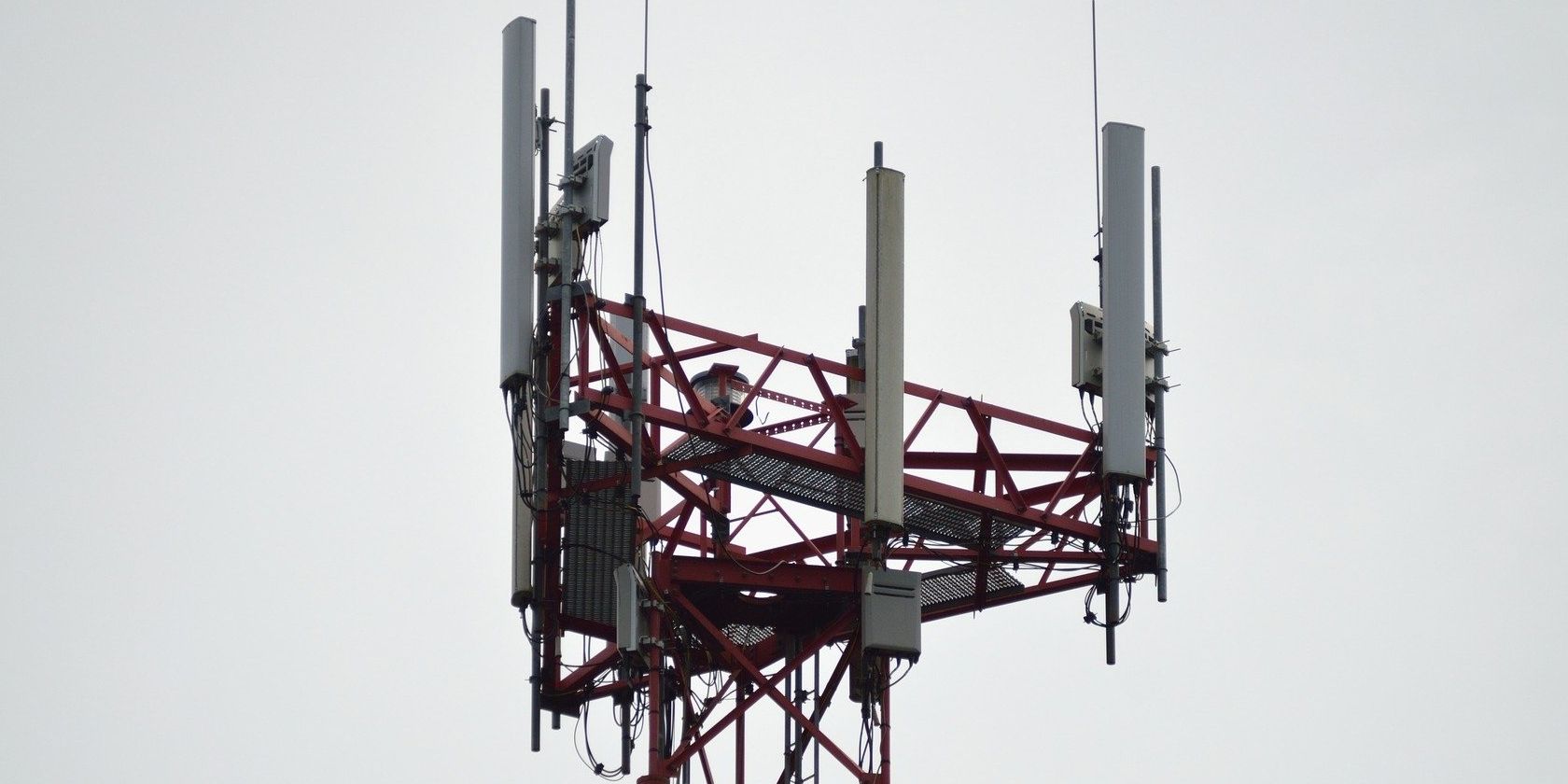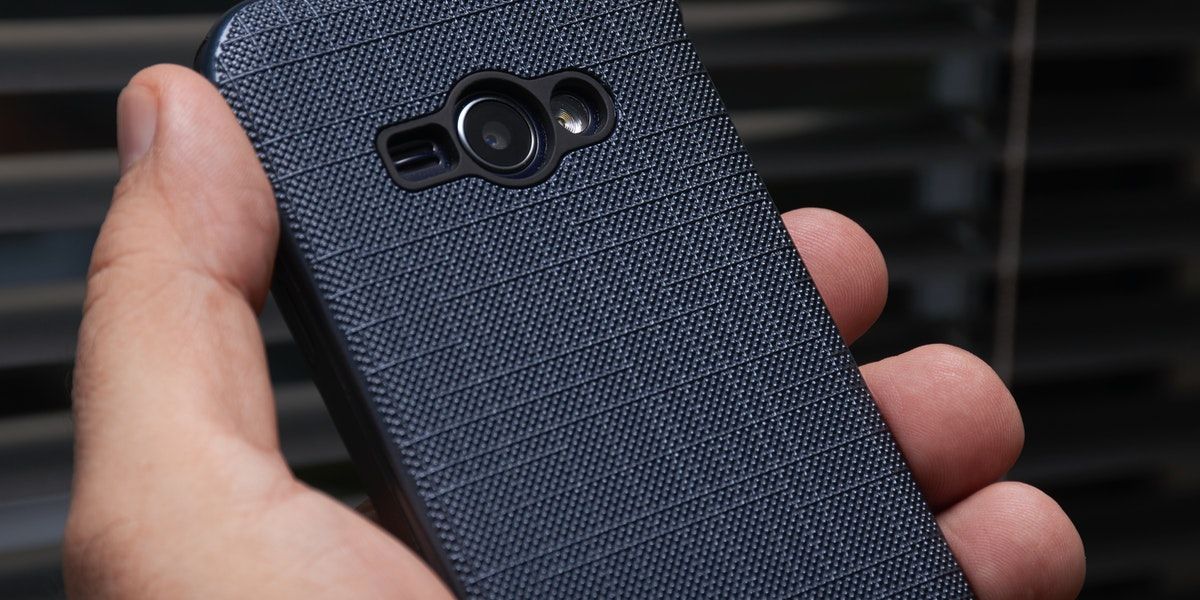Most people use their cellphone at home despite having access to a landline. Cellphones are arguably more convenient, and there is usually no difference in call quality. The exception to this occurs when a cellphone's signal isn't strong enough.
A cellphone signal can be interfered with for many different reasons. Fortunately, many of them can be fixed within a few minutes. So why do cellphones have signal problems, and what can you do about it?
What Affects Your Cell Signal?
The quality of a phone's cell signal depends primarily on your location. It depends on both the distance to the nearest cell tower and any obstacles that the signal has to get through. Some areas don't have any cell towers nearby, and this causes poor signal regardless of what you do. But many obstacles can be avoided by moving around slightly.
When you are indoors, the biggest obstacle is usually the building itself. How much of an obstacle depends on what the building is made of. But you should also consider any large buildings, hills, or trees in the surrounding area. Your phone may also play a role as it may not be picking up the correct network.
If you're not sure what is causing your phone's signal to drop, you may need to try multiple solutions and see what works.
8 Ways to Increase Your Cell Signal Indoors
The easiest way to get a stronger signal is to go to a different location. But if you want to boost your signal inside a particular building, here are eight ways to do so.
1. Try a Different Room
The strength of a cellphone signal often varies widely inside a building. If your signal is weak, it's worth trying a different room. The best room in your home depends on the direction of the cell tower you are connecting to and the materials your home is constructed of. Ideally, you are looking for the room where the signal has to pass through the fewest walls. It isn't always convenient, but sometimes stepping outside can provide an immediate boost even if you're directly outside your door.
2. Change Your Surroundings
It's sometimes possible to improve cellphone signal in a specific room by changing a few things around. The coating on glass has the potential to interfere with the signal. You should therefore try opening the windows. If there are any large pieces of furniture that the signal is going through, try putting them on the other side of the room. You should also move anything that emits its own signal, including anything electrical or magnetic. If there are any hedges or trees immediately outside the room, you can also try trimming them back.
3. Remove Your Phone Case
Some cellphone cases are poorly designed and can interfere with the signal by blocking access to the antenna. If you have a case on your phone, it's worth taking it off to see if this provides an immediate boost. It's also possible to block the antenna by holding your hand over it. Try holding your phone differently or leaving it on a table.
4. Turn Airplane Mode On and Off
When you turn airplane mode on and off, your phone is forced to search for a network. This is useful because sometimes a phone doesn't automatically select the network with the best signal. If you've recently changed location, this can force the phone to look for other networks that are now optimal.
5. Check Your SIM Card
If you've used the same SIM card for a long time, it's possible that it's no longer working correctly. You should remove the SIM card from your phone and check for any dust or dirt. If this doesn't help and the SIM card looks worn, you may want to consider ordering a replacement. Most providers will send you a replacement for free and don't require you to change your number.
6. Get a Signal Booster
A signal booster is a device that increases the strength of a cell signal indoors. They are designed for houses where the signal is strong outside, but the building materials reduce the strength indoors. They consist of an outdoor antenna that picks up the signal and a booster and antenna which broadcasts it around a house. They allow you to pick up a strong signal anywhere in a house rather than having to go to specific rooms. It's worth noting that signal boosters are only effective if the signal outside your home is optimal.
7. Use Wi-Fi Calling
Wi-Fi calling provides an alternative to using your cell signal for making phone calls. Instead of using your carrier's network, it uses a broadband connection. Wi-Fi calling works with any Wi-Fi hotspot, which allows it to be used both in public places and at your house. It is free to use, and it doesn't require you to change your number. However, it's important to note that some phones don't support Wi-Fi calling. Calls that use this method can also cut out if you get out of range of the Wi-Fi signal.
8. Switch Carriers
All carriers have different network coverage. If you find that your signal strength is consistently low in a particular area, it may be a good idea to change provider. It's possible that your carrier simply isn't suitable for your location. It's important to note that changing carriers won't improve your signal if something else is causing the problem. If your house is constructed in such a way that the signal is being blocked, a new carrier isn't going to help that.
Weak Cell Signal Is Irritating But Fixable
Having a weak cellphone signal while you're out can be highly irritating. But it's arguably worse when it is regularly occurring at your house.
There are many ways to improve your signal, but you may have to switch carriers if they don't work. Prior to doing so, however, it's important to check that your new carrier offers a better service in your area.




